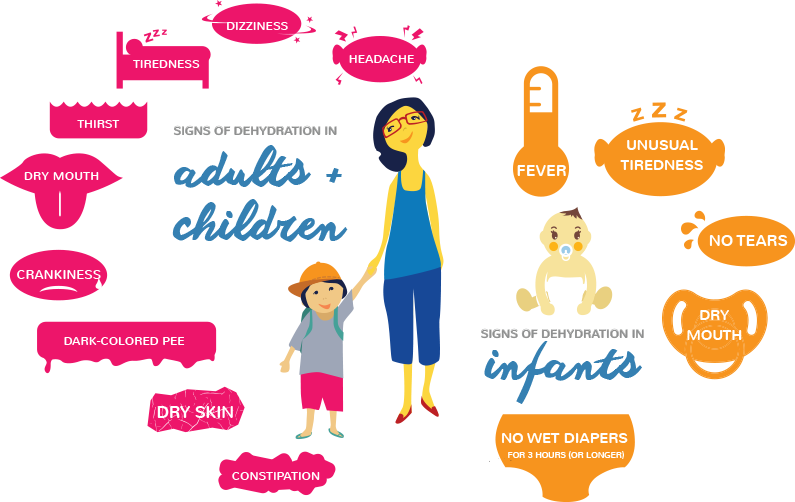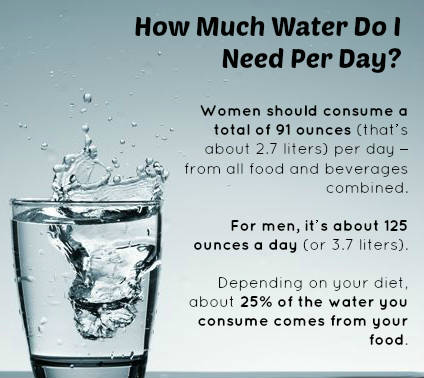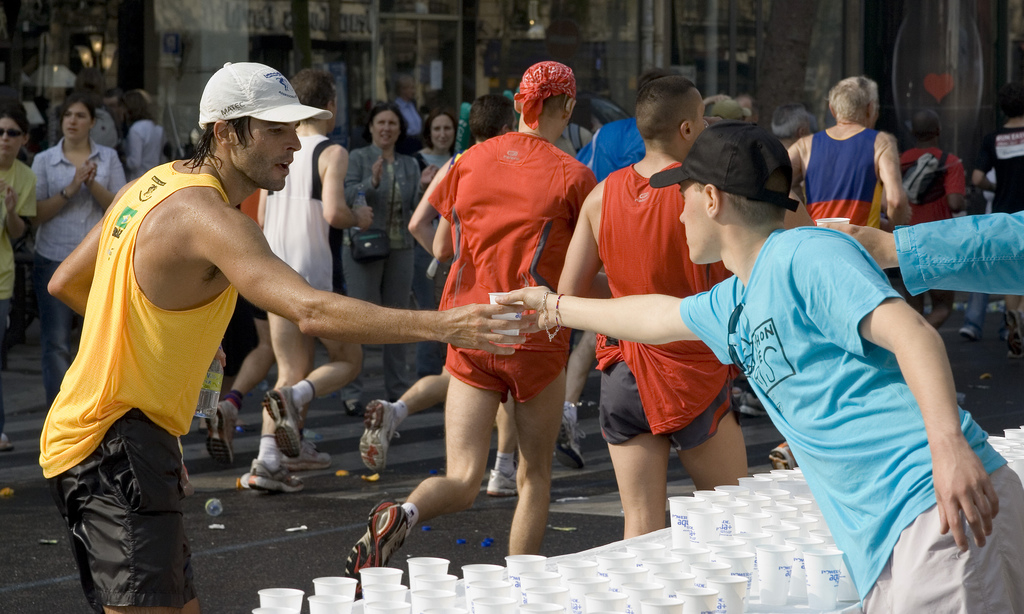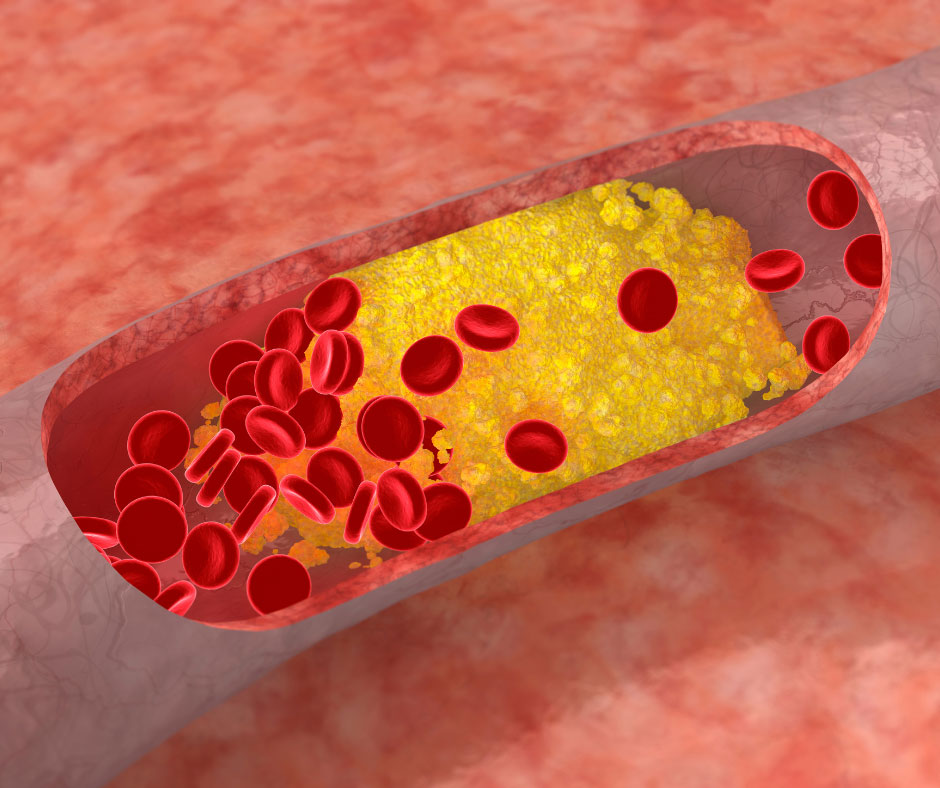Water makes up about 60 percent of your body weight. Every cell, tissue and organ in your body needs water to work properly. Water gets rid of wastes through urination, perspiration and bowel movements, water keeps your temperature normal, and water lubricates and cushions your joints. Water is also critical for your heart health. Your heart is constantly working, pumping about 2,000 gallons of blood a day. By staying hydrated – that is, by drinking more water than you are losing – you are helping your heart do its job.
Dehydration
Dehydration occurs when you lose more fluid through sweating, illness, fever or urination than you consume in food and water. Dehydration can negatively affect your organs and bodily functions, including your heart and cardiovascular system. When you are dehydrated your blood volume, or the amount of blood circulating through your body, decreases. To compensate, your heart beats faster, increasing your heart rate and your blood pressure. Also, when you are dehydrated, your blood retains more sodium, thickening your blood and making it harder for your blood to circulate through your body. Keeping your body hydrated helps your heart pump blood more easily and allows oxygen to reach your muscles, which helps the muscles work efficiently.
Those most at risk for dehydration are the elderly, people with chronic illnesses, children and athletes. Dehydration can be a serious condition that can lead to problems ranging from swollen feet or a headache to life-threatening conditions such as heart attack or heat stroke.
Signs of mild to moderate dehydration are thirst, a dry or sticky mouth, not urinating much, dark yellow urine, headache, or muscle cramps.
Signs of severe dehydration are not urinating, or very dark yellow or amber-colored urine, dry, shriveled skin, sunken eyes, irritability or confusion, dizziness or lightheadedness, rapid heartbeat and breathing, listlessness or unconsciousness, or delirium. Should you or someone you know experience any of these symptoms, contact a health professional immediately.

How much water do you need?
Every day you lose water through your breath, perspiration, urine and bowel movements. For your body to function properly, you must replenish its water supply by consuming beverages and foods that contain water. Thirst isn’t the best indicator that you need more fluids. If you get thirsty, you’re probably already dehydrated. Thirst can also be confused with hunger – drink water if you’re feeling hungry. The color of your urine is often the easiest indicator of hydration. Pale and clear (lemonade-colored) urine means you’re well hydrated. If your urine is dark, drink more fluids. Consult a health professional if your urine remains dark, cloudy or foul smelling even after you have increased your water consumption.
To prevent dehydration and to make sure your body has the fluids it needs, get in the habit of drinking a glass of water first thing in the morning, a glass of water with each meal and a few more glasses of water throughout the day. Also drink proactively, especially before, during and after exercise, on long airplane flights and in hot weather. The National Academies of Sciences, Engineering, and Medicine has determined that the adequate daily fluid intake for the average, healthy adult living in a temperate climate need is:
- For women: About 11 cups (2.7 liters or about 91 ounces) total daily fluid intake (includes all beverages and water-containing foods).
- For men: About 15.5 cups (3.7 liters or about 125 ounces) total daily fluid intake (includes all beverages and water-containing foods).

Water is the best thing to drink to stay hydrated, because it’s calorie-free, inexpensive and readily available. Drinking the commonly recommended eight 8-ounce glasses of water a day is reasonable considering about 25 percent of our daily fluid intake comes from food and the rest from drinks. In addition to water, beverages such as milk, juice and herbal teas are composed mostly of water. The solid foods you eat, especially fruits and vegetables, can also provide a significant amount of water. Cucumbers are 96% water and watermelons are 92% water. However, many processed foods, such as chips and crackers, are nearly devoid of moisture and contain a lot of salt. The excess salt thickens your blood and makes it harder for your blood to circulate through your body. To get rid of the excess salt, the body requires more liquid.
Caffeinated drinks, such as coffee and soda, can contribute to your daily water intake, but the caffeine acts as a diuretic and can cause you to lose more fluids, and excess sugar can inhibit the body from absorbing water. Alcoholic drinks are also a diuretic. When drinking alcoholic beverages, be sure to drink plenty of water.
Sports drinks tend to be high in added sugars and calories and should be used only when you’re exercising intensely for more than an hour. These drinks help replace electrolytes lost through perspiration and sugar needed for energy during longer bouts of exercise.
Energy drinks are different from sports drinks. Energy drinks generally aren’t formulated to replace electrolytes. Energy drinks usually contain large amounts of caffeine or other stimulants, sugar, and other additives.

Factors that influence your water needs
Your individual water needs depend on many factors, including your health, how active you are and where you live. You might need to increase or modify your total fluid intake based on several factors:
- Exercise. If you do any activity that makes you sweat, you need to drink extra water to cover the fluid loss. It’s important to drink water before, during and after a workout. If exercise is intense and lasts more than an hour, a sports drink can replace the electrolytes – the minerals in your blood – lost through sweat. However, it is healthier to drink water while you’re exercising, and when you’re done, eat a healthy snack like orange slices, bananas or a small handful of unsalted nuts.
- Environment. Hot or humid weather can make you sweat and requires additional fluid intake. Dehydration also can occur at high altitudes. You will also need extra fluids if you are sitting in the sun on a hot or humid day, even if you aren’t exercising.
- Overall health. Your body loses fluids when you have a fever, diarrhea or are vomiting. If you have certain medical conditions, such as diabetes or a heart condition, or if you are older than 50, or overweight, you may also have to take extra precautions and increase your fluid intake. Other conditions that might require increased fluid intake include bladder infections and urinary tract stones.
- Pregnancy or breast-feeding. Women who are pregnant or breast-feeding need additional fluids to stay hydrated.
- Traveling: If you’re traveling in a different climate, you might sweat differently, or drinkable water might not be readily available and you will need to seek other fluids. Traveling also often disrupts our normal routines – it is important to remember to drink fluids throughout the day.
Water is your body’s principal chemical component. For good heart and overall health it is important to remember to drink plenty of fluids and stay hydrated.
FAQ: Staying Hydrated and Understanding Dehydration
References:
American Heart Association: http://www.heart.org/en/healthy-living/fitness/fitness-basics/staying-hydrated-staying-healthy
Mayo Clinic: https://www.mayoclinic.org/healthy-lifestyle/nutrition-and-healthy-eating/in-depth/water/art-20044256
Medline Plus: https://medlineplus.gov/ency/article/000982.htm
UPMC (University of Pittsburgh Medical Center): https://share.upmc.com/2014/09/importance-hydration-heart/









